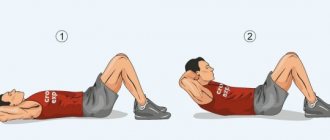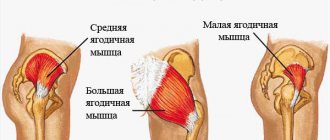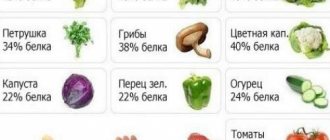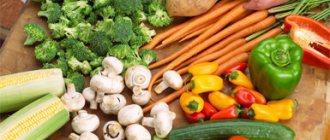Read more about this in the course “Learning Ayurveda easily and simply” Watch »
How to become a vegetarian. I’ll say right away - if you don’t want it and it’s not relevant to you, pass by in silence. I'm not dragging anyone anywhere. Respect other people's choices as I respect yours. There is a question - there is an answer. After all, more often than not, people only ask me “how not to die without meat.”
Everything in my life was simple. Around 7 years old, my mother took me to the market to buy meat. And there a severed pig's head appeared before me. At that moment I learned what cutlets are made from. And I couldn’t push it inside myself anymore. I became allergic to fish. So I got off easy. But my husband became a vegetarian about eight years ago. And no, this is not my fault. When I told him something and made pug faces, he categorically demanded meat. As soon as I came to terms with it and started cooking, I suddenly stopped. It was such a shame, I had just decided what and how to feed him.
I'll start from the beginning.
Why switch to vegetarianism
Have you ever thought about the role food plays in human life? The science of nutrition (trophology) explains this role as follows: in the process of eating, the information system of the product is destroyed, energy is released, which is built into the energy information system of the “eater” and begins to change it.
In other words, a person really is what he eats. Therefore, products must be selected carefully.
The words of the scientist physiologist I.P. Pavlov also make one think that death before reaching 150 years of age cannot be considered natural. What happens then? Why does a person live less than the time allotted to him?
Candidate of Biological Sciences, raw foodist M.V. Oganyan in his lectures provides scientifically proven data that eating animal products provokes serious diseases in people and significantly shortens life. She believes that only through live nutrition and cleansing can a person forget about visits to doctors forever.
It is supported by 15 medical and nutritional organizations from countries around the world, which have agreed on vegetarianism and veganism and made a statement that these food systems have virtually no disadvantages, reduce the risk of many diseases, and are also complete and healthy.
Everything is so, if only the diet is compiled correctly, and vegetables, grains and nuts are given a leading role. After all, vegetarianism is not a panacea for diseases, but rather a step leading to a healthy lifestyle. Because plant foods do not overload the digestive system, restore healthy intestinal microflora, give energy, lightness, and clarity of thoughts.
By the way, according to historical facts, the Spartans, Roman legionnaires and soldiers of Alexander the Great were abstinent in food and ate vegetarian food. Such a diet did not prevent the young men from being physically strong, participating in long marches and withstanding long-term battles.
Cook with pleasure!
Success in cooking largely depends on how correctly a vegetarian chooses his first cookbook. Initially, no one needs complex, time-consuming, labor-intensive recipes. It is better when the cookbook contains recipes for simple dishes that take no more than 30 minutes to prepare. If you want to move on to more sophisticated cooking, you will do so when the time comes.
And for your first experience in cooking vegetarian dishes, our collection of recipes is ideal.
You may also want to purchase one large cookbook that contains popular recipes that are publicly available. In this case, when you want to cook a classic dish, be it pancakes or lasagna, you will find a reliable, proven recipe there, ready to be implemented.
On our site you will find vegetarian recipes from different cuisines of the world, including Italian, Indian, Thai, Mexican and Ethiopian. Collections of ready-made recipes have been selected especially for you. Open the desired section of the site and start cooking with pleasure!
Although cookbooks can inspire new directions in the art of gastronomy, they are not entirely necessary. The truth is that you can create original vegetarian dishes to your taste without following recipes. To do this, it is enough to master the methods of preparing these dishes:
- smoothie;
- sandwiches;
- salads;
- fried vegetables;
- food in a wok pan.
Becoming a vegetarian is like learning a new life skill that doesn't require a ton of effort or worry.
How and how like-minded people can help
“The environment shapes our consciousness” is not an empty phrase. A person sooner or later succumbs to the influence of those who are nearby. If you want to change, start with your social circle.
Now you need people through whom personal transformation will occur. They will support and answer questions, of which there will be many.
You can find like-minded people on vegetarian, vegan, Vedic forums and sites where participants share their stories, exchange experiences and information.
Vegetarians often organize various events, holidays, festivals, why not visit them? There will be a chance to personally communicate (even better, make friends) with such people, listen to lectures, take part in master classes on preparing raw food dishes, and receive a powerful energy and information charge.
Tips for Beginner Vegetarians
- Try to build your diet from vegetarian dishes, initially eating meat only once a day, and over time reducing the amount of meat included in your diet to two or three times a week.
- In summer, it is better to give up meat completely, replacing it with fish. The body easily adapts to the exclusion of this component of nutrition in the warm season, since a person’s energy costs are much lower (there is no need to constantly warm the body), and all vitamins can be obtained from fresh, seasonal plant foods.
- People engaged in intellectual work will benefit from giving up meat. Those who work physically or are actively involved in sports should carefully select protein substitute products so as not to suffer from iron deficiency anemia or exhaustion of the body.
- One of the most effective ways to change your lifestyle or switch to a new diet is the support of like-minded people. If the decision to become a vegetarian is really very strong, you can find the same opponents of meat-eating and adhere to the principles of nutrition together.
- Many great people were vegetarians and called for following the principles of kill-free nutrition. Therefore, if you are thinking about how to become a vegetarian, reading the works or biographies of these famous opponents of meat-eating will provide additional motivation. Their eloquent and convincing words will not allow you to deviate from your goals. Leo Tolstoy, Pythagoras, Bernard Shaw and many others professed the principles of vegetarianism. And Leonardo da Vinci wrote: “The time will come when people will look at the killer of an animal in the same way as they now look at the killer of a person.”
What information does a vegetarian need and where to find it?
There are different points of view regarding this type of nutrition. It is advisable to consider all the pros and cons. We need comprehensive information from authoritative sources (scientific lectures, films, works of scientists, doctors). It can be found online, on vegetarian forums, in libraries, and bookstores. Knowledge will help you make the right decision and approach nutrition changes wisely.
I can recommend you these materials:
- "Earthlings" is a motivating documentary about humanity's barbaric attitude towards living beings and makes us think about the fact that our food is someone's life.
- Lectures by general practitioner and biochemist Marva Ohanyan on the dangers of meat and the importance of a healthy diet.
- “Vegetarianism and raw food diet” - lecture by Academician of the International Academy of Informatization at the UN O. A. Butakova.
- “On health and proper nutrition” - lecture by raw foodist, biologist Yu. A. Frolov.
And here are these books:
- “Raw food diet is the path to immortality” - V. A. Shemshuk (writer, biologist, researcher) provides evidence of the benefits of a plant-based diet. If the book is not on sale, here is a link to a free audio version.
- "The China Study" - Colin Campbell (Professor of Food Biochemistry at Cornell University) writes about the results of a large-scale study of the relationship between health and nutrition, conducted over 20 years.
- “12 steps to a raw food diet” - Victoria Butenko (raw foodist, lecturer, author of several books) shares her own experience of switching to a raw food diet and explains how to get rid of the addiction to thermally processed food.
Eco-friendly reason
To raise animals, they use a variety of chemical additives that are very toxic to humans. To ensure that the meat looks and remains fresh for a long time, it is treated with nitrates. Naturally, such an abundance of chemicals does not improve the health of consumers. In addition, many chemicals are carcinogenic, meaning that they can cause cancer if used over a long period of time and frequently. Consequently, everyone decides for themselves whether to become a vegetarian, but the benefits of a plant-based diet are undeniable.
What household appliances are necessary for a vegetarian?
If you are determined to lead a healthy lifestyle, you will definitely need a number of devices. I will name them and provide links to our review articles for each device. It tells you how to choose and use them correctly.
- Devices that improve water quality: distiller (purifies water by evaporating it), ozonizer (purifies, structures water), ionizer (saturates water with ions), water filter (cleanses harmful impurities).
- Juicer for making berry, fruit, vegetable and herbal juices.
- Blender (multifunctional device) for chopping, beating, slicing, mixing vegetables, fruits, berries, herbs and other products. Either a mixer (mixes and beats), a food processor (replaces a blender, mixer, juicer, mill).
- The dehydrator and oven will provide dried fruits, dried vegetables, and herbs all year round.
- The bread maker allows you to bake yeast-free bread with various additives.
- The oil press will provide fresh, high-quality hot or cold-pressed oil from nuts and seeds.
- Melanger (urbech-maker) for grinding seeds, nuts and spices (grinds products into paste with millstones), preparing urbech, nut pastes, coconut flakes, homemade chocolate from natural cocoa beans.
- Coffee grinder and/or hand mill for grinding salt, spices, herbs, seeds, nuts. Grind cloves, mustard peas, pepper into allspice powder, and seeds into flour.
- Sprouter (sprouter) for germinating seeds, grains, legumes and growing any greenery in the apartment.
Berry weightlessness
We left something special for last - desserts. And this is by no means fruit salads and raw food candies, but the most authentic vegetarian cake. You can easily do without butter, eggs and milk, making a delicious treat. All we need for this are nuts, berries and bananas.
Bottom cake:
- walnuts – 200 g
- candied fruits - 100 g
- pitted dates - 100 g
- cherry juice – 80 ml
Souffle:
- banana - 2 pcs.
- semolina - 2 tbsp. l.
- raspberries - 100 g
- blueberries – 100 g
- sugar - to taste
- gelatin - 12 g
- water - 500 ml for semolina + 40 ml for gelatin
- coconut flakes - 1 tbsp. l.
Beat nuts, candied fruits and dates in a blender into a thick, homogeneous mass. Add juice little by little. Line a small round springform pan with cling film, compact the nut mixture tightly and place in the freezer for 15 minutes.
Cook regular semolina porridge from semolina and water, cool slightly, add dissolved gelatin. Grind the bananas into puree, add to the porridge, add sugar if necessary. Divide the resulting mass in half. Mix grated raspberries into one part, blueberries and coconut flakes into the other. Leave a few berries for decoration.
Spread blueberry soufflé in an even layer on top of the frozen nut cake and place in the freezer for 10 minutes. Then add a layer of raspberry soufflé and let it harden too. Carefully remove the cake from the springform pan, decorate with fresh berries and mint leaves - the original vegetarian dessert is ready!
How to properly prepare for a diet change
The transition process must be comprehensive, changing not only nutrition, but also attitude towards one’s health and lifestyle.
Psychological preparation
- You need strong motivation, a clear understanding of the true reasons and goals, without them you won’t last long (useful content to help you).
- True allies are also important, but if you find yourself a mentor (teacher, mentor) - even better. You will be provided with advice and support.
- You and your family must be unanimous in your decision, otherwise disagreements regarding nutrition and lifestyle will inevitably arise. Read thematic books with your household, watch films, listen to lectures. Discuss and reflect.
- Try to convey to your family, friends, and colleagues the importance and necessity of your choice. Be prepared for the fact that not many will understand and support you. You'll have to give up sitting around the table, at least for the first time.
- Don't rush, the information needs to be absorbed. When you are ready, draw up an action plan taking into account all the nuances and try to strictly follow it.
The doctor's consultation
Don’t be lazy, make a list of questions and visit a doctor (preferably a vegetarian) with modern, progressive views. A conservative and follower of the Soviet school will make every effort to dissuade you.
Get a full examination (preferably with the whole family), save the results. After six months or a year, the procedure can be repeated to compare the results. They will be the main evidence of the correctness (or incorrectness) of the decision made.
If you have chronic diseases, consult your doctor. A lean and vegetable diet is prescribed for many health problems. You can choose a more comfortable type of vegetarianism.
If possible, go for treatment to one of the sanatoriums, where they treat you without any medications, only with vegetarian food (yes, there are such).
With your tests ready, pay a visit to the most important person in your life, a qualified nutritionist, nutritionist (dietitian), who will break down the components of food products for you.
He will teach you all the intricacies of a plant-based diet, product compatibility, and help you adjust your diet and menu taking into account your tests, physical data, climatic conditions, etc.
The maximum benefit from the diet will only be with the right combination of products, remember this.
Medical reason
Medical reasons for becoming a vegetarian involve giving up meat to prevent the development of cardiovascular diseases and cancer, as well as to prevent problems with the gastrointestinal tract.
Meat contains harmful cholesterol, which, when entering our body, pollutes blood vessels and reduces blood flow to the heart. As a result, blood pressure rises and there is a risk of stroke. If you replace meat protein with vegetable protein, then the cholesterol level will normalize after a while.
In addition, scientists claim that a meat-containing diet accelerates the wear and tear of internal organs, causing earlier aging of the entire body. Moreover, cancer is much less common in those who do not eat meat or reduce its presence in their diet to a minimum. And if you also take into account the “ecological friendliness” of modern meat products, you can understand why people become vegetarians.
How to switch to a vegetarian diet
The results will depend on the type of vegetarianism you choose, your health and age. However, any choice implies two options: now and immediately, or gradually. Young and healthy people can do it quickly, but others should take their time.
Determine the right type of vegetarianism
Vegetarianism is a general name for various types of nutrition, of which there are 5 main ones:
- veganism – complete rejection of any animal products;
- raw food diet - a diet consisting of raw plant foods;
- lacto-ovo vegetarianism – dairy and egg products are allowed;
- ovo-vegetarianism - only eggs are used from animal products;
- Lacto-vegetarianism – you can consume dairy products.
The right to choose is yours. Over time, you will decide what is closer to you.
Select a time and start the transition
In the summer, when there is an abundance of cheap greenery, brightly colored vegetables, fruits, and berries, the transition will be much more comfortable. The body needs time to make adjustments (to eliminate digestive system disorders), to change microflora, to form new habits.
Set a deadline for yourself - for example, a month. Avoid meat products immediately, replacing them with lighter or vegan alternatives. For two weeks, remove seafood from your diet, and then dairy and eggs.
Decide on your diet. Think over the menu carefully, or contact a specialist who will do it competently.
There are convenient applications for your phone with various vegetarian features, where you can find a menu for every day, week, month, taking into account the content of all the nutrients the body needs.
For a successful transition, follow these rules.
- Gradually accustom yourself and your family to small portions of food.
- Make one meal, for example, breakfast, completely vegetarian (porridge, vinaigrette, vegetable and fruit salads, buckwheat sprouts, grains, smoothies).
- Make lunch or dinner half of raw (cooked) vegetables.
- At first, steam or lightly boil the products.
- Regularly add cereal sprouts to salads.
- Don’t forget to flavor your dishes with herbs and spices.
- Use vegetable fats, add them to the prepared dish.
- For snacks, place a vase with berries, fruits, nuts, seeds, and sweet vegetables (pumpkin, carrots, beets) on the table.
- Replace tea with juices, herbal drinks, cocktails, smoothies.
Experiment, try different vegan products, find what you like. Having mastered the principles, you can always prepare your own food from those products that are currently on hand anywhere.
How fast should this happen?
Don't get hung up on how to become a vegetarian and when. For some it happens overnight, while for others it takes months or even years. The main thing is that it is comfortable for you. You don't need to become a vegetarian all at once. Your goal is not just to become one and settle for it. The point is to remain a vegetarian throughout your life and enjoy filling your daily menu with healthy vegetarian foods.
Remember, the more vegetarian foods you try, the easier it will be for you to give up animal products. Every week it will become easier and easier to follow your vegetarian eating habits.
One of the most influential American writers, Mark Bittman, has long followed the method he described in his book Veganism After Six. The idea is to stick to an exclusively vegetarian diet until the six o'clock dinner, and then eat whatever you want for the rest of the evening. This approach can greatly simplify the transition to vegetarianism and help in choosing the path to becoming a vegetarian, where to start. Your diet will change, and even if you can't go completely vegetarian, you'll be eating far fewer animal products than before.
If you think that being a full-time vegetarian for life is a difficult task, why not give it a try and take a vegetarian three-week test drive? Once you decide, you will have already taken the first step towards forming a useful habit. Just a few weeks on a vegetarian diet will allow you to evaluate how suitable this lifestyle is for you.
How to give up unhealthy foods
There is no point in immediately giving up animal products for health purposes; first, eliminate the most harmful ones from your diet.
Start with empty food that does not provide any benefit: snacks, sweet drinks, fast food, street food (shawarma, khachapuri, pies), confectionery.
Replace coffee with chicory drinks, black tea with herbal tea, sugar with honey and stevia, bread (learn to make according to vegan recipes) with yeast-free bread, pasta with cereals (or vegan types of noodles).
Read labels carefully. Never buy products that contain dyes, preservatives, thickeners, flavorings, or flavor enhancers.
Irrevocably remove pastas, semi-finished products, canned food, and mayonnaise from your diet. Carry out an audit in the kitchen, throw away all harmful and provoking products with a clear conscience. There should be nothing from your old life in your new life.
Go grocery shopping at the store or market well-fed, so as not to be tempted by the aromas of food again, and purposefully avoid unnecessary departments.
Discover the talent of a creative chef in yourself. Try to cook interesting dishes, it will captivate you and distract you from your usual food. Go to a vegan cafe or restaurant and appreciate how delicious ordinary vegetables can be.
In any case, you will not be left without food. Health food stores (including online stores) are open especially for vegetarians, where you can find a complete replacement for your favorite animal products.
But the most important motivator for giving up harmful products is information education, don’t forget about it.
Best vegetarian stores
- "Asha" is a store of Indian, vegetarian goods. Presents a wide range of healthy food products. Starting from exotic cereals, algae, mushrooms, sweets, vegan cutlets and pancakes, ending with Indian dietary supplements, cosmetics, and incense.
- “Jagannath” is a place where there is everything for the vegetarian soul. Oils, nut butters, urbechi, carob, spices, bran, cereals, jelly, asparagus, dietary supplements and much more.
- “White Clouds” is a shop with a wide selection of products. Delicious vegetarian sausages, pates, cheeses, a wide selection of different types of flour, spices, cocoa and so on.
- “The Path to Yourself” - here you can buy any healthy food products, as well as minerals for water purification, balms, algae, and Ayurvedic products.
- “Indian spices” – and not only they occupy the shelves. A variety of herbs, spices, frozen foods, canned food, coffee, cocoa, exotic cereals and legumes, seeds, nuts... the list is endless.
You can buy any product with confidence, knowing that it will not harm your health.
Find out if these stores are in your city.
How to replenish the microelements contained in meat?
Meat is rich in many useful microelements, but especially: protein, vitamin B12, zinc, iron, omega 3 amino acids. Their deficiency can lead to undesirable consequences. Beginning vegetarians need to learn how to balance their diet in order to replenish all the necessary supplies. Next, we present a table with a list of plant products containing the most important microcomponents.
| Microelement name | Product name/content per 100 g |
| Protein | Lentils (25 g), nuts (17-20 g), legumes (6-10 g), chickpeas (19 g), seeds (21 g), sesame seeds (21 g), green peas (5 g), broccoli (3 G). |
| Iron | Beans (72 mg), hazelnuts (51 mg), oatmeal (45 mg), mushrooms (35 mg), halva (33.2 mg), wheat cereal (31 mg), peas (20 mg), seaweed (16 mg), dried apricots (11.5 mg). |
| Zinc | Wheat germ (17 mg), sesame (10.2 mg), hemp seeds (8.8 mg), poppy seeds (7.9 mg), pumpkin seeds (7.8 mg), soy powder (6.6 mg), pine nuts (6.5 mg). |
| Vitamin B12 | Caramel, brown mushrooms, mashed potatoes, almond milk, soy. |
| Omega-3 | Flaxseed oil, hemp seeds, flax seeds, walnuts, soybean oil, beans. |
| Calcium | Spinach, seaweed, sesame, all types of nuts, flax seeds, garlic, all types of cabbage, apricot, figs, raisins. |
It is important to note that vitamin B12 is found in rather small quantities in plant foods; vegetarians need to take methylcobalamin as a supplement to avoid deficiency of this important vitamin, preventing the development of anemia.
As for Omega-3, plant foods contain only alpha lipoic acid (ALA), the other two most important acids EPA and DHA can be converted from it, but only 15-20% of its amount. This also serves as a signal for the development of a deficiency of these acids.
How to replace animal products
People who have a hard time parting with meat can replace it with soy-based products: soy meat, minced meat, miso (soybean paste), vegan sausages, sausages, pates.
“Vegetable meat” containing protein, amino acids, fats, minerals are: soybeans, beans, mung beans, beans, peas, chickpeas, lentils, flax seeds, pumpkin seeds, sesame seeds, sunflower seeds, walnuts, cashews, pistachios, almonds, mushrooms.
Fish (omega fats, phosphorus, iodine, vitamin D) will be replaced by the following products:
- 7 vegetable oils rich in omega-3, 6, 9: hemp, flaxseed, nut, sea buckthorn, cedar, camelina, chia;
- chia seeds, walnuts, seaweed.
An analogue of cow's milk (a source of protein, calcium, B vitamins) will be vegetable milk: almond, oat, pumpkin, coconut, buckwheat, cashew, soy, rice, etc.
Plants with similar properties are spinach, broccoli, asparagus, parsley, arugula, green peas, legumes, sesame seeds, poppy seeds.
There are also substitutes for eggs: flaxseed flour, chia seeds, peanut butter, silken tofu, carob, turmeric.
Pay attention to the variety of ready-made products in the vegan departments - these include cheeses with original additives, mayonnaise, sauces, and other things that make life easier for “poor herbivores”.
Vegetables fruits
Biochemist and naturopath M.V. Ohanyan speaks in his lectures about the benefits of raw plant foods for health and maintaining human microflora. She believes that plants collect and contain solar energy. For a person to be healthy, he should have live, thermally unprocessed food.
Plant fruits are the main suppliers of mineral salts, phytoncides, carbohydrates, vitamins, and antioxidants. All of them have B vitamins, vitamins C, D, E, A, K, P, amino acids, protein, omega 3-6-9. Vitamin B12 is found in spirulina and chlorella. Vegetables contain more than 100 types of chemical elements.
Root vegetables, fruits, and herbs are best used seasonally and in your region. Candidate of Biological Sciences, herbalist L.N. Surina (author of books on the medicinal properties of local plants) says that the human body from birth is accustomed to local products, their chemical, mineral composition, and water. “Foreign” plant foods cause imbalance.
Seasonal (circanimal) restructuring of the body also plays a role. Seasonal products have the composition of nutrients that a person needs at a given time, and they are fully absorbed. In addition, there is hope that the fruits will ripen on their own, without the help of “chemistry.”
You can grow your own greens on the windowsill. Over the summer, a refrigerator emptied of meat products can be thoroughly filled with frozen natural gifts. Dry (dry) whatever your heart desires.
Cereals, legumes
Cereals:
- tasty, nutritious, satisfying;
- easy to digest;
- cleanse and normalize the functioning of the gastrointestinal tract;
- reduce cholesterol levels;
- have a beneficial effect on the condition of hair, nails, and skin.
The ideal diet for humans, according to American biochemist Colin Campbell, is natural (whole) food, including grains, legumes, vegetables, nuts, etc.
When cooking, most of the beneficial substances are lost, so it is better to soak them and (or) sprout them, then pass them through a blender, mix with vegetables, and make pastes.
Legumes are valuable because they contain a high content of vegetable protein, polyunsaturated fatty acids, iron, vitamin B 12, and phospholipids.
Seeds, nuts
Seeds (grains, legumes, nuts) contain the richest composition of nutrients for the structure, growth, and further development of the plant. They complement any dishes and drinks. In ground form, mixed with spices, they are used in urbechi, pastes, with which sandwiches are made for snacking throughout the day.
Nuts are a fatty, high-protein, somewhat heavy product. To make it easier for the body to process such high-calorie foods, it is advisable to pre-soak them for 10 hours.
Eat nuts before lunch with any greens and vegetables, no more than 35 g per day. Or in crushed, ground form, simply sprinkled on food (drinks), so they are easier to digest.
Oils
They are fat extracted from plants. They contain a set of unique unsaturated fatty acids, vitamins, and minerals in liquid form.
Unrefined, cold-pressed oils have the greatest nutritional value (they retain all their beneficial properties). They contain: B vitamins, vitamins C, E, K, PP, A, D, omega 3-6-9.
They are used only in raw form, without heat treatment (otherwise they become carcinogens). Don't forget that oil is added to an already prepared dish (1-3 tbsp per day).
For greater benefit, it is better to alternate them every month or use several types at the same time.
Spices, herbs
The medieval scientist and physician Avicenna believed that spices make any food medicinal.
If you want to get food that acts as medicine, you will have to study the relevant literature. Most of the spices and herbs are simple garden, forest, and field herbs: parsley, horseradish, onion, dill, mustard, chamomile, sage, tops of root crops, chives, etc.
They can be dried (frozen, pickled, pickled), turned into powder, added to certain dishes, using the strengths of the plant.
More exotic spices (ginger, asafoetida, saffron, turmeric, seaweed, etc.) are sold in Indian spice stores, online stores, and markets.
It’s interesting to experiment in this area and make your own signature spicy composition.
Teas
Include herbal teas - tisanes (herbal drink) in your diet. Plants contain active substances that are very useful for the human body: phytoncides, essential oils, vitamins, antibiotics, alkaloids, glycosides, saponins, organic acids, etc.
Ready-made preparations can be purchased at pharmacies and specialty stores. It’s easy to prepare any composition yourself. There is now enough information in the public domain on this matter. Do not forget to consult a doctor about the composition if you have any diseases.
Drinking regime
A person should drink 1.5-2 liters of clean water per day. After waking up from 6-7 o’clock in the morning (everyone has their own time to get up), drink 0.5 liters of hot water in small sips. It starts the morning cleansing of the gallbladder, kidneys, and liver.
Water is needed with squeezed lemon juice and honey, or ionized (if you have an ionizer). Eating is allowed after 30 minutes so that the liquid has time to do its work. You can drink it an hour after eating. The remaining amount is consumed throughout the day (it is recommended to carry water with you).
Equip your kitchen
When switching to a vegetarian diet, there is an incentive to learn something new about cooking methods. Equip your kitchen with reliable electric assistants, and you will see that cooking is not a tedious necessity, but a pleasant experience.
Several well-chosen appliances will open up new possibilities in cooking and will not require large financial investments. If you, like many inexperienced vegetarians, don't yet know where to start equipping your kitchen, take a look at our cookware guide, which contains useful information on finding and choosing the necessary equipment.
For the most part, useful kitchen appliances are affordable. These include toasters, blenders, multicookers, and submersible mixers. Some models may cost more, often due to the external design, which is unlikely to affect the quality and service life of the device.
They also sell expensive models that are really worth the money. In particular, multi-pressure cookers such as Instant Pot, food processors and professional blenders. These are higher level appliances, which, nevertheless, will be an excellent addition to the kitchen.
Check out our cookware buying guide for recommendations when choosing kitchen appliances.











